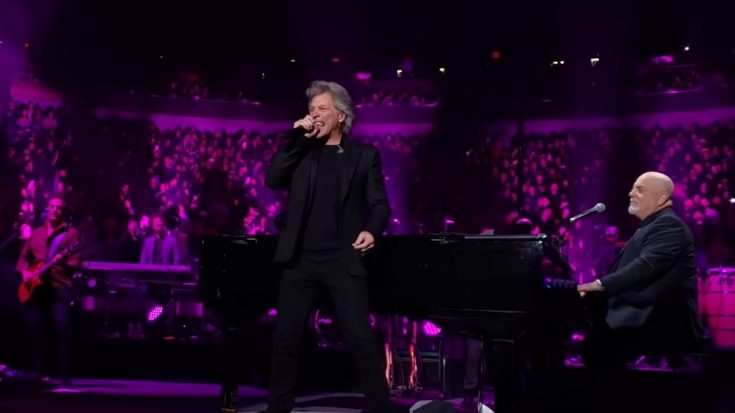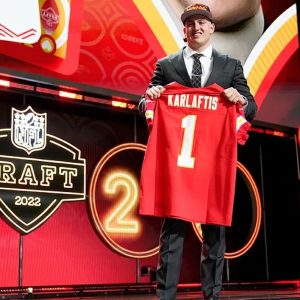
Jon Bon Jovi and Billy Joel live in 2020 – JOELFN / Youtube
The 80s rock scene pulsated with a vibrant energy fueled by both camaraderie and competition. Bands like Mötley Crüe and Poison shared stages and influences, fostering a sense of shared purpose within the hair metal subgenre. However, this era wasn’t without its clashes.
The relentless pursuit of success, coupled with the outsized personalities of some musicians, created a breeding ground for conflict. Insecurity and a thirst for recognition could easily morph into resentment, leading to feuds that spilled out from the recording studio onto the concert stage.
This competitive atmosphere wasn’t always destructive. It could push bands to hone their sound and stage presence, driving innovation and raising the bar for the entire genre. However, when egos clashed and perceived slights festered, the results could be far less positive.
This article digs into the reported reasons behind the friction between Jon Bon Jovi and two other rock icons of the era: Axl Rose of Guns N’ Roses and Sebastian Bach of Skid Row. Their stories offer a glimpse into the complex dynamics at play within the 80s rock scene, where the line between friendly competition and bitter rivalry could be razor thin.
A Clash Of Egos And Media Attention
The tension between Axl Rose and Jon Bon Jovi reportedly began in 1987. Guns N’ Roses were on the rise, opening for Alice Cooper. According to reports, Axl took offense after being called a Bon Jovi look-alike, escalating the situation to a physical brawl. This hostility carried over to the next night’s performance, where Axl launched into a rant criticizing Bon Jovi and his music.
Years later, an article seemingly reignited the feud. It reported that Jon Bon Jovi expressed frustration over Axl Rose receiving more media attention despite not releasing a new album in over a decade. Bon Jovi was quoted as saying the press was more fascinated by Axl’s “bad-boy legacy” than his own band’s work. This perceived imbalance in media focus likely contributed to the ongoing tension.
Adding another layer to the complexity, Guns N’ Roses’ music often explored darker themes and featured a rawer sound compared to Bon Jovi’s polished, arena-rock anthems. This difference in musical styles could have further amplified the perceived rivalry between the two bands, representing rival factions within the broad spectrum of 80s rock.
From Friendship To Frigid Feud
The relationship between Jon Bon Jovi and Sebastian Bach was more complex than a simple rivalry. Bon Jovi actually played a mentor role in Skid Row’s early success. He helped them secure a record deal and took them on tour as an opening act. This initial camaraderie fostered a sense of loyalty and gratitude for Bach.
However, things reportedly soured as Skid Row’s popularity grew. Bach alleged that Bon Jovi became envious when Skid Row’s merchandise outsold Bon Jovi’s at some shows. This perceived shift in power dynamics, from benefactor to competitor, may have significantly strained the relationship. The initial bond of friendship became overshadowed by feelings of insecurity and resentment.
The situation escalated further after a concert, with Bach claiming Bon Jovi’s crew subjected him to a brutal prank. This incident, along with the underlying tension, solidified the animosity between them.
From Brawls To Reconciliation
Despite the reported animosity, there seems to be a chance encounter that led to a thaw in the relationship between Bon Jovi and Bach. Years later, Bach recounted a story of having dinner with Axl Rose in London when they happened to see Bon Jovi at the same restaurant. Bach, initially hesitant, decided to approach Bon Jovi, and to his surprise, they ended up having a good time together.
This chance meeting suggests that the old feuds may have softened over time. Bach acknowledged Bon Jovi’s role in Skid Row’s early success and expressed gratitude. There haven’t been any reports of further conflict, suggesting a peaceful resolution, at least between Bach and Bon Jovi.
Adding to this hopeful sign, both Bon Jovi and Skid Row continue to tour and perform, even collaborating occasionally. While the details behind the initial conflicts may never be fully known, this apparent reconciliation offers a glimpse of a more mature and understanding dynamic between the two musicians.
The Legacy Of Rock Rivalries
The reported tensions between Jon Bon Jovi, Axl Rose, and Sebastian Bach highlight the competitive nature of the rock scene. This competitiveness can be a double-edged sword. On the one hand, it can push bands to write better songs, deliver more electrifying performances, and constantly refine their sound.
The 80s rock scene thrived on this energy, with bands like Van Halen and Def Leppard challenging each other to new heights of technical proficiency and showmanship. This competitive spirit can ultimately benefit the fans, who get to experience a wider range of innovative and exciting music.
However, as the stories of Bon Jovi, Axl Rose, and Sebastian Bach illustrate, competition can also morph into destructive animosity. Insecurity, ego clashes, and a thirst for media attention can easily sour relationships and lead to unnecessary feuds.
hese conflicts can distract bands from their creative pursuits and leave fans caught in the middle, forced to choose sides. In the worst cases, rivalries can even lead to violence or sabotage, hindering the overall growth and progress of the genre.





